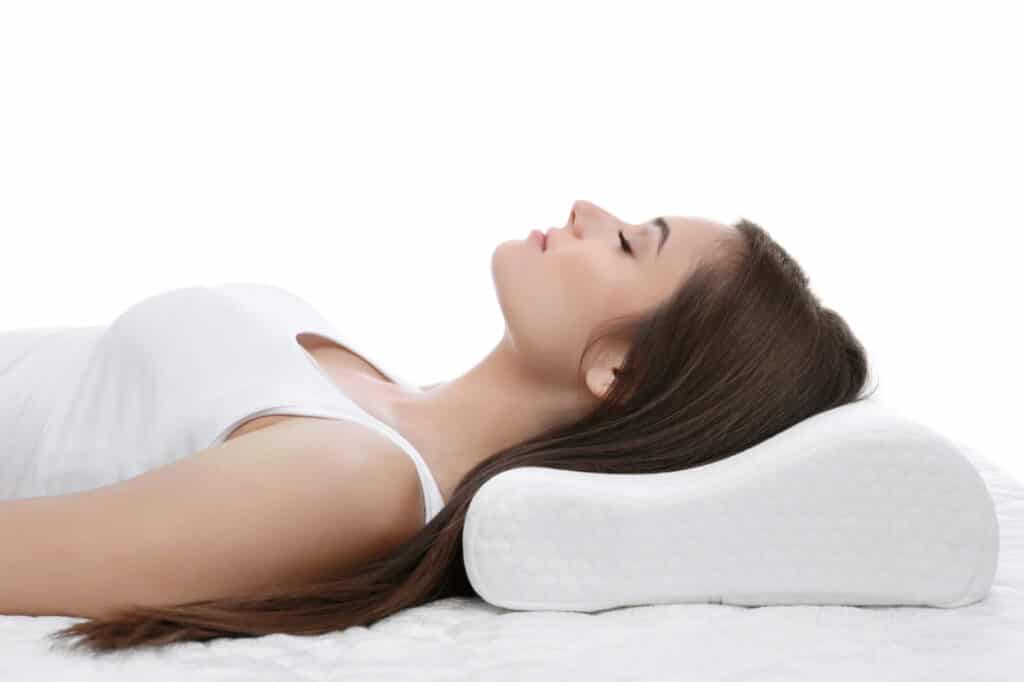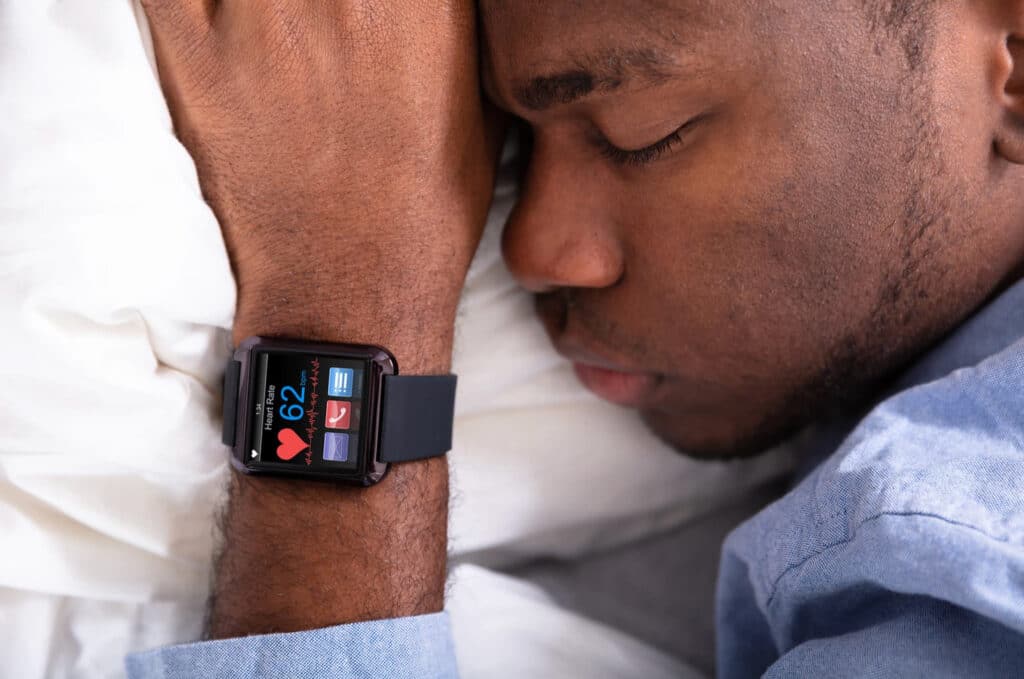
Breathing Mechanics and Physiology: Why Better Breathing Means Better Health
We breathe over 20,000 times a day, yet most of us don’t think twice about it. But if you struggle with chronic pain, fatigue, stress,

When it comes to getting a good night’s sleep, does your pillow make a difference?
Have you thought about the type of pillow you buy when it’s time to get a new one?
How you do pick the best pillow for neck pain?
Many people don’t give too much thought to the specifics on what makes the best pillow.
Does it matter if you have a fancy pillow that cost you $250 or the cheapest one you could get at Ikea?
The type of pillow, the name brand or the price have no impact on how well it is going to work for some people.
Your average person will just need a pillow that fits their body size and shape. There is no need to search out and try 10 different pillows.
For others, their needs are different. Having a pillow that is too high or too low, too firm or too soft will be the difference between a restful night and a night of tossing and turning in discomfort.
Did you know that sleeping on the “wrong pillow” – a pillow not best suited to your body needs, can lead to poor sleep, headaches and neck pain?
If you are struggling with conditions such as:
Then the pillow you choose to sleep on can make a big difference!

Given most of us spend roughly 8 hours resting our heads on pillows, it is important that we pick the right one! Having the best pillow can help minimise or eliminate neck pain by getting the right shape for your body and sleeping position.
Before we get to how to pick the best pillow for neck pain, we should touch on the position you sleep in and it can/may impact your neck (or back).

When you sleep on your back it is important to have a pillow that supports the natural spinal curvature of your neck.
If you are suffering from acute or chronic neck pain and stiffness this can often be the most comfortable position to sleep in. With the right pillow your neck muscles can relax, allowing you a good night’s sleep.
If your pillow doesn’t adequately support your neck, sleeping on your back can sometimes be extremely painful, to the point you have to prop yourself up with several pillows or sleeping sitting up!
You don’t want a pillow too high or too firm as this will push your head too far forward and may increase tension through your neck muscles. You want to keep your neck supported with your head and upper spine at the same level.
Medium softness is ideal as it will allow for adequate support and optimal head/neck/upper back alignment. A pillow that is too soft will likely lose its shape from the weight of your head.
For back sleepers, the best pillow for neck pain would be a contoured pillow such as High Profile or Low Profile have built-in neck support that will support the natural curve of your neck. These pillows are especially helpful for those dealing with neck pain/soreness.
Whether you get a high or a low profile pillow will depend on your size.

I would argue that sleeping on your side is the best position to get a good night’s sleep as it also promotes more optimal breathing; as we have mentioned before, breathing well at night will have a big impact on your sleep quality and duration.
When choosing a pillow, you want to choose a pillow that supports the natural curvature of your neck, so the pillow should be higher at the neck and lower at the head.
You want to avoid having any gaps between your neck and the pillow when sleeping on your side, so it is best to have a contoured pillow or a pillow that conforms to your head in a supportive manner; memory foam pillows can do this.
Side sleepers may prefer a firmer support pillow to sleep to keep your head and neck in line with the rest of your spine. Once again, if your pillow is too soft, the weight of your head will gradually sink down over the course of the night.
When picking size, consider how broad your shoulders are so that you minimise the gap between your neck and the pillow and are still able to keep head and upper back level.
Best pillow for neck pain: high profile best for those with larger frames and low profile for those with a small frame.

When you sleep on your stomach, you often sleep with your head turned in one direction. This can cause strain to the muscles, tendons and ligaments of your neck and upper back. Sleeping on your stomach may cause you to arch or extend your lower back.
We often nag on stomach sleepers for this being a “bad position” to sleep in for your spine (neck and back) for the above reasons. However, you could argue that if you have been doing it for X number of years and it works for you, then why change now?
That being said, it is important to choose the best pillow for sleeping on your stomach.
You don’t want a pillow that is too hard or too high.
If you find sleeping on your stomach is the only way you can sleep or you end up waking on your stomach, then we would recommend you pick a soft, flat pillow or use no pillow at all.
To best maintain a neutral spine position, stomach sleepers want to go for a smaller/lower level pillow, because if it is too high, your head will be craned upwawards.
A softer pillow should offer enough of a buffer between your body and your mattress without your head being too propped up.
A Low Profile would be best pillow for neck pain in stomach sleepers.

As a general rule I would recommend changing your pillow at least every 2 years.
If you are using a pillow that is 5 to 10 years old, the pillow is no longer doing the job it was designed to do – supporting your head and neck, and likely not sleeping as comfortably as you could! Just like your running shoes, everything has a lifespan!
An old pillow is NOT the best pillow for neck pain!
Over the course of 1 year, sleeping 7-8 hours a night, your head will spend approximately 2,500 hours on your pillow. Just likely a mattress has a lifespan, so do our pillows! The best pillow is a worthwhile investment for high quality sleep.
Not sure whether your pillow has some life left in it or not?
Let’s check your pillow. First take it out of the case.
These are just a few signs your pillow needs replacing.
From a health perspective, your pillow collects dead skin cells, mildew, mold, fungus, dust mites. Over time as much as half the weight of your pillow can be attributed to these organisms. This can trigger allergies, impacting your breathing, thereby impacting your sleep quality.
If your pillow passes the sight and smell test, now try the fold test.
Fold your pillow in half.
If it lies there folded and doesn’t spring back, it is a “dead pillow”.
If it is a natural-fill pillow, drape it over your arm. If it hangs, it’s done!
At RedoHealth we stock Dentons pillows – High Profile, Low Profile and Multi-profile – the best pillow for neck pain (or so we believe!).
See our online shop. Available for pick-up in the clinic only.

We breathe over 20,000 times a day, yet most of us don’t think twice about it. But if you struggle with chronic pain, fatigue, stress,

From Melinda… For people who come to my classes and clients who have been seeing me for a while, may have heard some of the

Meet Susan Susan recently suffered a fall attempting to lift a 2.5kg bag of soil overhead in her garden shed when she felt her leg
Sign Up Below To Get Your Free RedoHealth Guide Now

By registering, you agree to receive SMS and email communications from RedoHealth. No spam guaranteed. Unsubscribe at anytime.